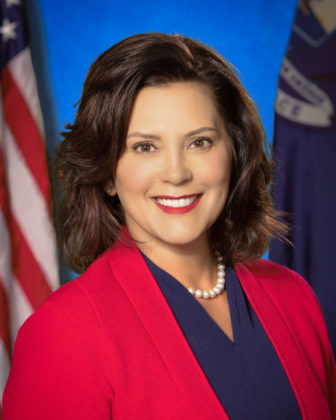Government transparency advocates say they are closer than perhaps they’ve ever been to making the Legislature and governor’s office subject to state public records laws.
A package of bills to do just that cleared the House Government Operations Committee on Tuesday, setting up a likely vote on the House floor. It would be the most significant change to Michigan’s publics law since a 2015 revision to the Michigan Freedom of Information Act standardized fees for records and tightened time restrictions on government bodies to respond to requests.
Similar legislation has previously passed the House, but didn’t receive a vote in the Senate.
“We think this year is the change,” said Jane Briggs-Bunting, founding president and a current board member of the Michigan Coalition for Open Government.
A key difference is new legislative leadership and a new governor.
Michigan is one of only two states that exempt the governor’s office from the state’s public records law and is among eight states where the Legislature is exempt. Those exemptions were key reasons the state was given an “F” grade on transparency and accountability in 2015 by the Center for Public Integrity, a Washington, D.C.-based nonprofit organization.
“Michigan deserves better. Michigan citizens deserve better,” Briggs-Bunting said.

State of Michigan
Michigan Gov. Gretchen Whitmer has said she supports applying public records laws to the governor’s office and the Legislature.
Gov. Gretchen Whitmer campaigned on greater transparency and has publicly endorsed the idea of applying public records laws to her office and the Legislature.
“That’s really important,” Whitmer said during her first State of the State address on Feb. 12. “The sun should shine as brightly on both branches.”
House Speaker Lee Chatfield also has spoken favorably about the concept.
Last year, the holdup was in the Senate, advocates for the legislation say. But new Senate Majority Leader Mike Shirkey has said he’s willing to look at the measures.
“He believes that government should be accessible to citizens,” Shirkey spokeswoman Amber McCann said.
A key concern among legislators has been protecting constituent communications from public disclosure. McCann said Shirkey often is asked by his constituents to help them in their dealing with state government.
“He would want to avoid the possibility of a private citizen’s personal information being made available in the public forum. He also believes that technology has changed the workplace and the work day and any discussion about an expansion of FOIA needs to take into account the way in which technology has changed our work environment,” she said.
But Shirkey has a record of supporting public records laws during his time in the House, said Michael Reitz, executive vice president of the Mackinac Center for Public Policy, a Midland-based free-market think tank. Reitz also is the current president of the Michigan Coalition for Open Government.
“The importance of open government broadly speaking, we believe it is critical,” Reitz said. “In fact, there is a famous line that the American Civil Liberties Union often uses, which is ‘democracy dies in darkness’,” Reitz said.
“The people can’t really hold their public officials accountable if they don’t know what the decisions are and they cannot evaluate those.”
Momentum to remove the exemptions for the governor and Legislature began to grow after the Flint Water crisis. Lisa McGraw, public affairs manager for the Michigan Press Association, called the water crisis “a glaring example” of the importance of government transparency.
The press association long has championed public records laws.
“I think anything that taxpayer dollars are spent on should be available to the public as far as what it is and what it is being used for,” McGraw said.